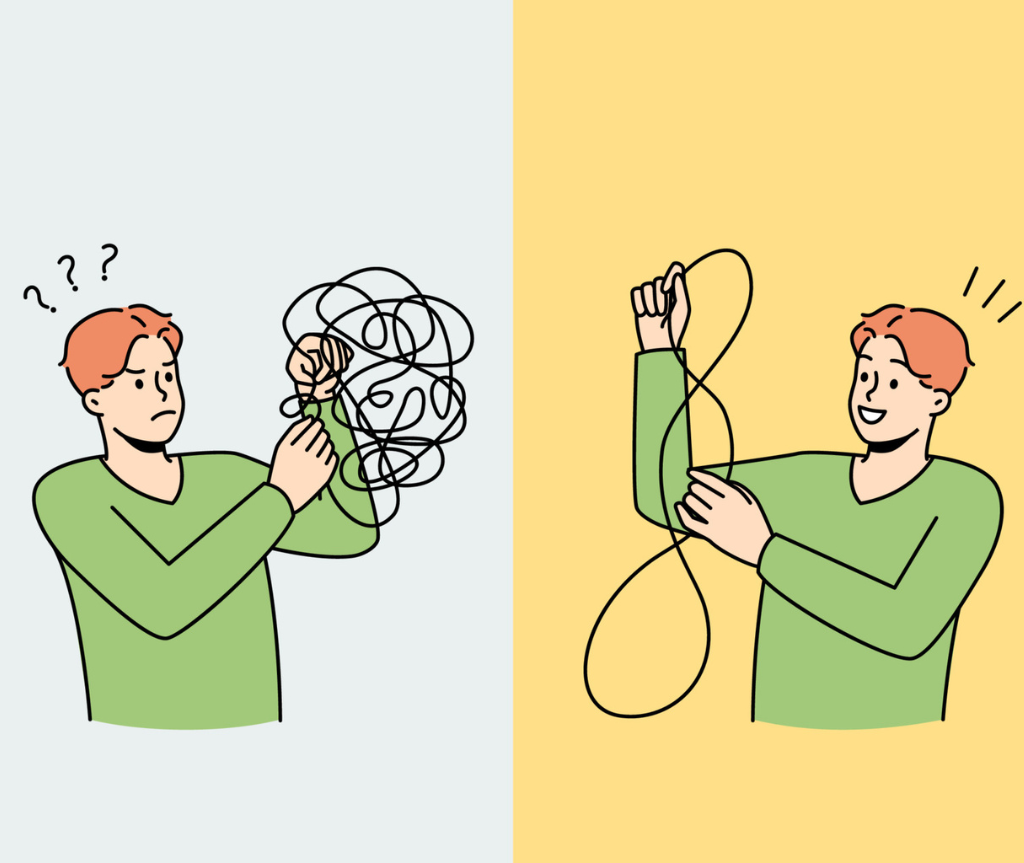Feeling low for a few days is one thing — but when sadness lingers, draining your energy and making even small tasks feel heavy, it might be depression. And no, it’s not about “snapping out of it.” Understanding how to overcome depression starts with recognising it for what it is — a genuine medical condition that shapes how you think, feel, and move through life. With the right support, lifestyle shifts, and sometimes professional care, recovery is not only possible but deeply life-changing.
The good news? Healing is possible. With the right mix of self-care, daily habits, and professional support when needed, you can find your way back to balance. Here’s how to start — one gentle step at a time.
1. Let Go of the Past
Depression often stirs up pain from the past — regrets, guilt, or unresolved memories that quietly shape how you see yourself. While you can’t change what happened, you can change your relationship with it.
Try acknowledging those feelings instead of pushing them away. Journaling or working with a therapist can help you process them safely. Healing doesn’t mean forgetting; it means making peace with what’s behind you so you can finally look ahead.
2. Stop Blaming Yourself
Depression feeds on self-criticism. You might replay old mistakes or believe you’re not enough. But perfection isn’t the goal — being human is.
When that inner critic speaks, respond with kindness. Ask yourself, Would I talk to a friend this way? Learning to forgive yourself creates the emotional space needed for recovery.
3. Move Your Body — Start with a Walk
When you’re low, even standing up can feel impossible. But movement, however small, is medicine. A few minutes outdoors — breathing fresh air, feeling sunlight — helps your body release endorphins, the brain’s natural mood boosters.
Begin with a 10-minute walk. As your energy returns, aim for 30 minutes of brisk walking three to five times a week. Each step tells your body: I’m still moving forward.
4. Shift Your Perspective
Depression narrows your view until you can see only what’s wrong. To break that pattern, start gently training your mind to notice what’s still good — or what could be.
Write down one thing you’re grateful for each morning, or one small goal you’d like to achieve that day. Over time, these micro-shifts in thinking create space for hope and momentum.
5. Rediscover Enjoyment
Depression can rob everyday moments of joy. Activities that once brought pleasure — music, books, laughter — might now feel distant. That’s not your fault; it’s your brain struggling to release the chemicals that fuel enjoyment.
Revisit one small thing you used to love. Set aside 20–30 minutes for it, even if it feels forced at first. Over time, those sparks of pleasure can reignite a sense of calm and connection.
6. Stay Connected
Isolation deepens depression. Even quiet companionship can be healing. Try meeting a friend for coffee, joining a local class, or simply sitting with loved ones.
You don’t have to talk about how you feel right away. Just being around people who care about you can remind you that you’re not alone — and that connection itself is a form of medicine.
7. Nourish Your Mind and Body
Your brain and body are in constant conversation. What you eat can affect how you feel. A 2023 review in Nutrients found that diets rich in omega-3 fats, leafy greens, and whole grains support better mood balance.
Aim for balanced meals with salmon, eggs, beans, berries, and nuts. Nutrients like vitamin D, B12, and magnesium are especially important. And stay hydrated — aim for six to eight glasses of water daily. Even mild dehydration can worsen fatigue and low mood.
8. Manage Everyday Stress
Stress and depression often travel together. When stress builds up, your body produces more cortisol — a hormone that can heighten anxiety and irritability.
Create small, calming rituals: five minutes of deep breathing, writing down what’s worrying you, or listening to a guided meditation before bed. These moments teach your nervous system that it’s safe to relax.
9. Be Patient with Yourself
Recovery isn’t a straight line. Some days will feel lighter; others will feel heavy again. That’s part of the process.
Celebrate small victories — getting dressed, stepping outside, replying to a message. Each one is evidence of your strength, even when you don’t feel it. Healing happens quietly, one ordinary act at a time.
10. Reach Out for Support
If your symptoms persist or you’re finding it hard to cope, reach out. A therapist, GP, or counsellor can help you explore treatment options such as talking therapy or medication. Seeking help isn’t weakness — it’s courage in action.
The Bottom Line
Depression can make life feel muted, but it doesn’t have to define your story. By blending small, consistent actions — gentle movement, nourishing food, mindful rest, and honest connection — you can begin to lift the fog.
Start with one thing today. Even the smallest step towards hope is a step back to yourself.



